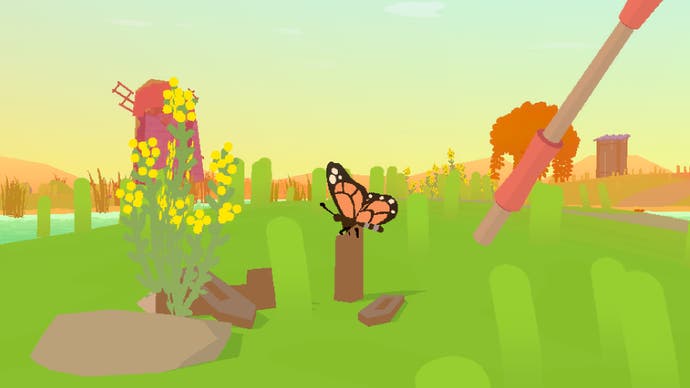Paradise Marsh review - surrender to the calm and colour of nature
Star Maker.
One of my clearest lockdown memories is of going for a lunchtime walk with Olaf Stapledon. It was somewhere near the start of things, I think, no cars on the roads and those government mandated exercise breaks still feeling weirdly illicit. There is a stretch of the South Downs behind my house which I am ashamed to say I had never visited until Covid. One morning I set out over the gentle grassy hump of its hill, over the buried spine of the thing, with the almost indescribable vastness of Stapledon's novel Star Maker playing in my headphones.
Star Maker is all about a journey through the cosmos - deep into space and out the other side, really. But that day its wild intergalactic journey actually served to root me more deeply in the landscape I was exploring. I remember the broken chalky earth where the badgers make their sets, the dew pond with its looping swallows, a lonely bench pointed at nothing where I sat in silence for a space of time that was maybe twenty minutes, maybe an hour. I was learning, all the time. Over the course of that morning ramble I learned afresh how to be in nature.
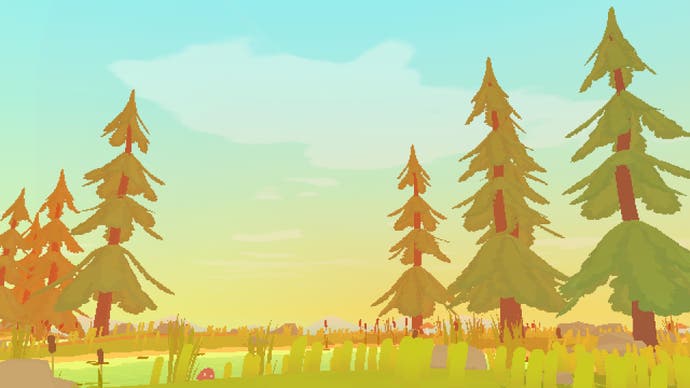
And this is exactly what Paradise Marsh teaches. It's a small game, but also a gigantic one: truly a Stapledonian trick of time and space. I load it up and explore a colourful endless wetlands, cycling through day and night, spring, summer, autumn and winter. There's an objective of sorts - I'm armed with a net as I plod around and I have a book of creatures to capture - but it's an objective I have not really focused on for the most part. Instead I wander. I watch and listen, I see the different shades of the sky as it moves from peach to strawberry yogurt to dark bubbling storm clouds. I enjoy the rain one moment and the snow the next. I enjoy the silence - my silence.
This gets to the heart of it, actually. Normally when I play a game, I am filled with words: I am pondering how to write about it, how to get into it, what I might say about it. The gift of Paradise Marsh, I reckon, is the silence it brings. I played in a kind of cheery fugue, if such a thing is possible. The room had disappeared along with the noise of the road and my cat asking for dinner. Then I loaded up Google Docs a few minutes back and realised I was still wordless and empty headed, and that this space and silence in the head is what the game had given me.
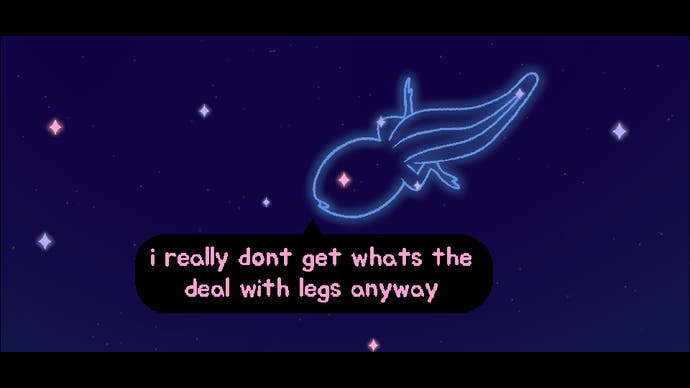
So now I have to construct the experience from memory - I get to play Paradise Marsh twice. I can tell you that in the game I walk around this fuzzy landscape - at times, the entire thing looks like it's been rendered with those huge wet markers you get at Bingo - and the game reveals itself as a series of happy discoveries. The trees change from oak to pine. The sky darkens or the sun rises and stains the world a lurid Tango orange. I pick a direction and move from water to earth, water to earth, and come across a pile of stones I might skip over the surface of a river, or a bottle filled with a poem.
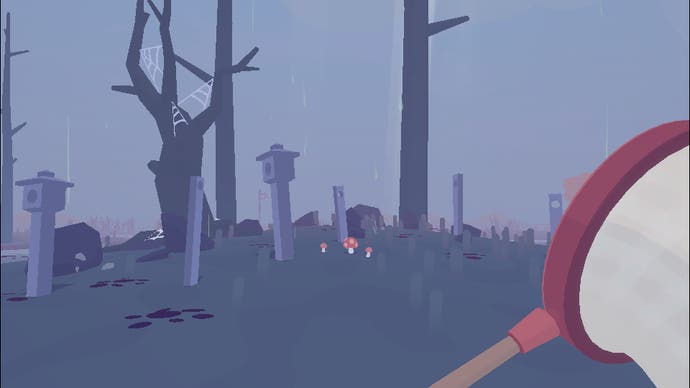
The landscape repeats and jumbles. I can never get to the end of it, but like one of those old Tom and Jerry cartoons I move past familiar things quite regularly. The landmarks cycle: a tyre swing, a moss-speckled windmill, an old tractor half eaten up by grass. There is always a touch of dereliction, human stuff giving way to the inevitable. An overhead light will flicker and I'll only see the flicker when I compare it to the clear beam of the god rays lancing through clouds. A bin will be surrounded by rings of scattered trash, pulled out and discarded by birds perhaps.
The game's distinct spaces play into the animal catching stuff: moths appear at night but like a light source. Tadpoles stick to shallow water. The animals make noises and shapes too: I have been lured to them by a sparkle on the horizon and a chirp or chime. When I catch them, the thrashing connection of the net is almost jarring in such a quiet space.
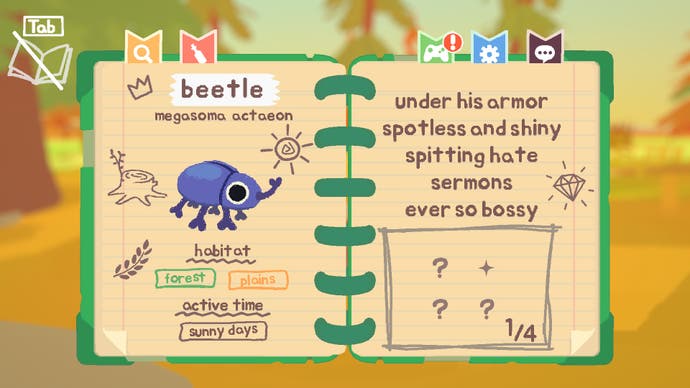
And we're back to Stapledon, I think: the animals I collect eventually become stars and constellations that hover over me as I continue to explore. A nice distraction, but the game's appeal lies elsewhere. The more I play the more I realise that I would dearly love to visit Paradise Marsh in real life. In the game, at least, I can linger for days and weeks due to the accelerated passage of day and night. This is a game about nature and about us. It's about what nature gives us and what it asks of us - about what it draws out of us while we are present, and leaves us with when we have gone away.
